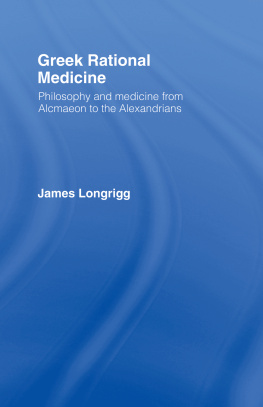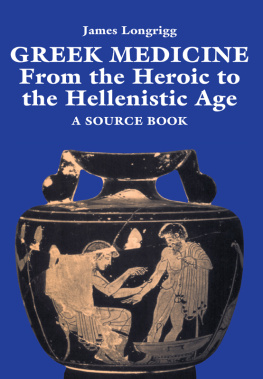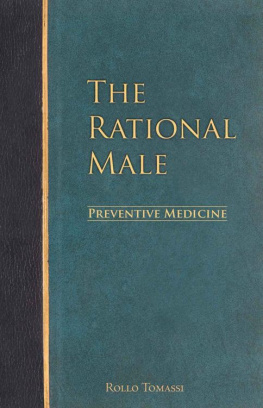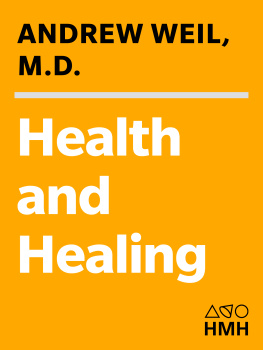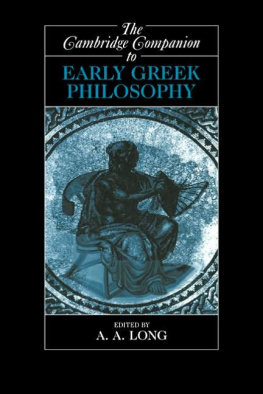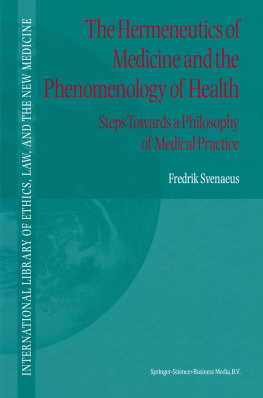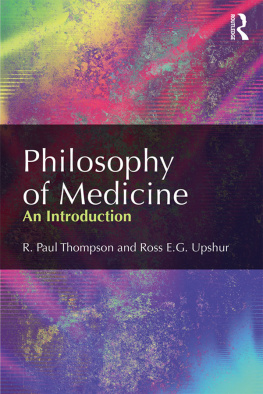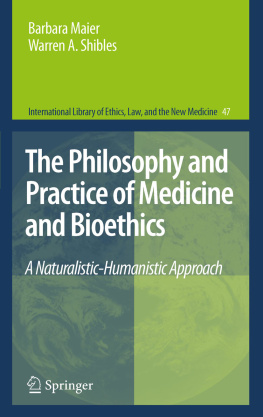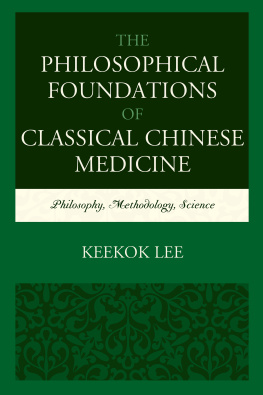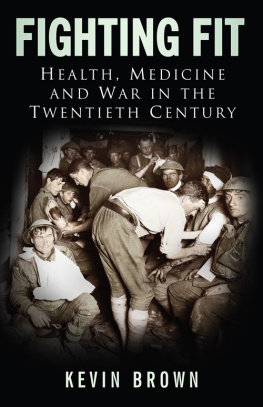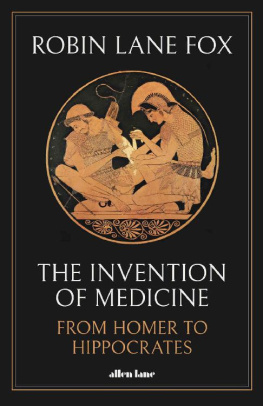Longrigg - Greek rational medicine: philosophy and medicine from Alcmaeon to the Alexandrians
Here you can read online Longrigg - Greek rational medicine: philosophy and medicine from Alcmaeon to the Alexandrians full text of the book (entire story) in english for free. Download pdf and epub, get meaning, cover and reviews about this ebook. City: Griechenland, year: 2013, publisher: Taylor & Francis Ltd, genre: Religion. Description of the work, (preface) as well as reviews are available. Best literature library LitArk.com created for fans of good reading and offers a wide selection of genres:
Romance novel
Science fiction
Adventure
Detective
Science
History
Home and family
Prose
Art
Politics
Computer
Non-fiction
Religion
Business
Children
Humor
Choose a favorite category and find really read worthwhile books. Enjoy immersion in the world of imagination, feel the emotions of the characters or learn something new for yourself, make an fascinating discovery.
Greek rational medicine: philosophy and medicine from Alcmaeon to the Alexandrians: summary, description and annotation
We offer to read an annotation, description, summary or preface (depends on what the author of the book "Greek rational medicine: philosophy and medicine from Alcmaeon to the Alexandrians" wrote himself). If you haven't found the necessary information about the book — write in the comments, we will try to find it.
Longrigg: author's other books
Who wrote Greek rational medicine: philosophy and medicine from Alcmaeon to the Alexandrians? Find out the surname, the name of the author of the book and a list of all author's works by series.
Greek rational medicine: philosophy and medicine from Alcmaeon to the Alexandrians — read online for free the complete book (whole text) full work
Below is the text of the book, divided by pages. System saving the place of the last page read, allows you to conveniently read the book "Greek rational medicine: philosophy and medicine from Alcmaeon to the Alexandrians" online for free, without having to search again every time where you left off. Put a bookmark, and you can go to the page where you finished reading at any time.
Font size:
Interval:
Bookmark:

GREEK RATIONAL MEDICINE
Ratione vero opus est ipsi medicinae
(Celsus, De medicina, Proem, 48)
Philosophy and medicine from Alcmaeon to the Alexandrians
James Longrigg

First published 1993
by Routledge
2 Park Square, Milton Park, Abingdon, Oxon, OX14 4RN
Simultaneously published in the USA and Canada
by Routledge
270 Madison Ave, New York NY 10016
Reprinted 2000
Transferred to Dieital Printing 2006
Routledge is an imprint of the Taylor & Francis Group
1993 James Longrigg
Typeset in 10 on 12 point Baskerville by
Witwell Ltd, Southport
All rights reserved. No part of this book may be reprinted or reproduced or utilized in any form or by any electronic, mechanical, or other means, now known or hereafter invented, including photocopying and recording, or in any information storage or retrieval system, without permission in writing from the publishers.
British Library Cataloguing in Publication Data
Longrigg, James
Greek Rational Medicine: Philosophy and Medicine from
Alcmaeon to the Alexandrians
I. Title
610.1
Library of Congress Cataloging in Publication Data
Longrigg, James
Greek rational medicine: philosophy and medicine from
Alcmaeon to the Alexandrians/James Longrigg.
p. cm.
Includes bibliographical references and index.
1. Medicine, Greek and Roman. I. Title.
R138.L65 1993
610.938-dc20 92-28865
ISBN 0-415-02594-X
Publisher's Note
The publisher has gone to great lengths to ensure the quality of this reprint but points out that some imperfections in the original may be apparent
For Thomas and Elizabeth
The Greeks invented rational medicine. In an effort to ensure that this outstanding achievement was accorded proper recognition within our classical curriculum at the University of Newcastle, I set up ten years or so ago a course on the history of Greek medicine. It is, I believe, the only one of its kind offered within classics departments in the United Kingdom. In teaching this course it soon became apparent that my students required some assistance in disentangling the highly complex relationship between philosophy and medicine in the classical period. This book has been written with the modest hope that it might prove to be of some assistance here. Since the majority of my students have little or no knowledge of classical Greek, I have also taken the opportunity to translate and quote at some length a good many passages from our original sources of evidence. Although, in this latter respect, it has been suggested that a choice of less familiar source material would enable me to invest this book with a greater degree of novelty, I decided, however, only selectively to follow this advice. My reasons for doing so are threefold. In the first place, some of the more familiar passages illustrate the points at issue far more effectively than any alternative would do. (This, after all, is largely why these texts are familiar.) Again, I thought it would seem rather perverse to seek to illustrate inter-relationships between philosophy and medicine without reference in detail to such texts as Ancient Medicine (De vetere medicina) and Sacred Disease ( De morbo sacro). And, of course, not all who read this book (it is hoped) will be specialists in this subject.
Papers based upon research in progress for this work have been presented at the Wellcome Institute in London, and at the universities of Glasgow, Manchester, St Andrews, Newcastle, Oxford, Durham, Warwick and Leiden. In response to editorial invitations certain aspects of this material have been given a preliminary 'airing' in History of Science and in The British Journal for the History of Science, I am grateful to the editors of these journals for their permission to reproduce this material in the place for which it was originally intended.
I should like to express also my deep gratitude to the Wellcome Trust for twice awarding me a Research Fellowship in the History of Medicine, which enabled me to pursue my researches without distraction; to the University of Newcastle upon Tyne for granting me study leave on both occasions, and to the Small Grants Research Committee for subventions which enabled me to work at the Wellcome Library in London.
I am grateful to Professor Drachmann and to the Editor of Artemis Verlag for their kind permission to reproduce (with slight modifications) on p. 209.
I am most grateful to Nancy Longrigg for preparing the indices.
Last, but by no means least, I should like to acknowledge the great kindness of Dr Vivian Mutton of the Wellcome Institute, who read the whole of an early draft of this work, and of Dr Hans Gottschalk of the university of Leeds, who read the penultimate chapter. Their comments have proved invaluable.
Hamsterley Mill, Durham
April 1992
Die Philosophic ist die Mutier der Medizin in wissen-schaftlichen Rcksicht, und das Wachstum der einen steht mit der Zunahme der anderen Wissenschaft in ungetrennlicher Verbindung.
(K. Sprengel, Versuch einer pragmatischen Geschichte der Arzneikunde , 1846, p. 2)
One of the most impressive contributions of the ancient Greeks to Western culture was their invention of rational medicine. It was the Greeks who first evolved rational systems of medicine for the most part free from magical and religious elements and based upon natural causes. The importance of this revolutionary innovation tor the subsequent history of medicine can hardly be overstressed. Here for the first time in the history of medicine was displayed a strikingly rational attitude which resulted in a radically new conception of disease whose causes and symptoms were now accounted for in purely natural terms.
This emancipation of medicine from superstition was the outcome of precisely the same attitude of mind which the Milesian natural philosophers had been the first to apply to the world about them. The natural philosophers' attempts to explain the world without recourse to supernatural intervention brought about a transition from mythological conjecture to rational explanation. Just as the natural philosophers had sought to explain in purely natural terms such frightening phenomena as earthquakes, thunder and lightning, and eclipses, which had previously been regarded as manifestations of supernatural powers, so the same outlook was applied by the medical authors of Hippocratic treatises to explain such frightening diseases as epilepsy (the 'Sacred
Without this background of Ionian Rationalism, Hippocratic medicine could never have been conceived. Virtually all that sets it apart and above earlier and contemporary medicine, whether Greek, Egyptian or Oriental, has been derived from this philosophical background, that is, its rational attitudes, procedures and modes of explanation; its conviction that human beings should be regarded as products of their environment, made of the same substances and subject to the same physical laws as the cosmos at large; its belief that diseases possessed their individual physeis (natures) that is, they were definable strictly in accordance with natural processes and ran their course within a set period of time, totally independent of any arbitrary, supernatural interference.
Greek rational medicine was transported to Egypt and reached its most impressive climax in third-century Alexandria. Here superstitious beliefs inhibiting the dissection of the human corpse, still deeply entrenched in mainland Greece, were for a brief period abandoned by expatriate Greek doctors. (There is some evidence, too, which asserts that they even vivisected human beings.) Given support and provision by the first Ptolemies, these medical researchers achieved levels of accuracy and sophistication in anatomy which were largely unsurpassed within Western culture until the sixteenth century. Greek medicine, generally, formed the basis of Western medical theory until the nineteenth century and Greek medical deontology still exercises a powerful influence upon medical ethics to the present day.
Font size:
Interval:
Bookmark:
Similar books «Greek rational medicine: philosophy and medicine from Alcmaeon to the Alexandrians»
Look at similar books to Greek rational medicine: philosophy and medicine from Alcmaeon to the Alexandrians. We have selected literature similar in name and meaning in the hope of providing readers with more options to find new, interesting, not yet read works.
Discussion, reviews of the book Greek rational medicine: philosophy and medicine from Alcmaeon to the Alexandrians and just readers' own opinions. Leave your comments, write what you think about the work, its meaning or the main characters. Specify what exactly you liked and what you didn't like, and why you think so.

